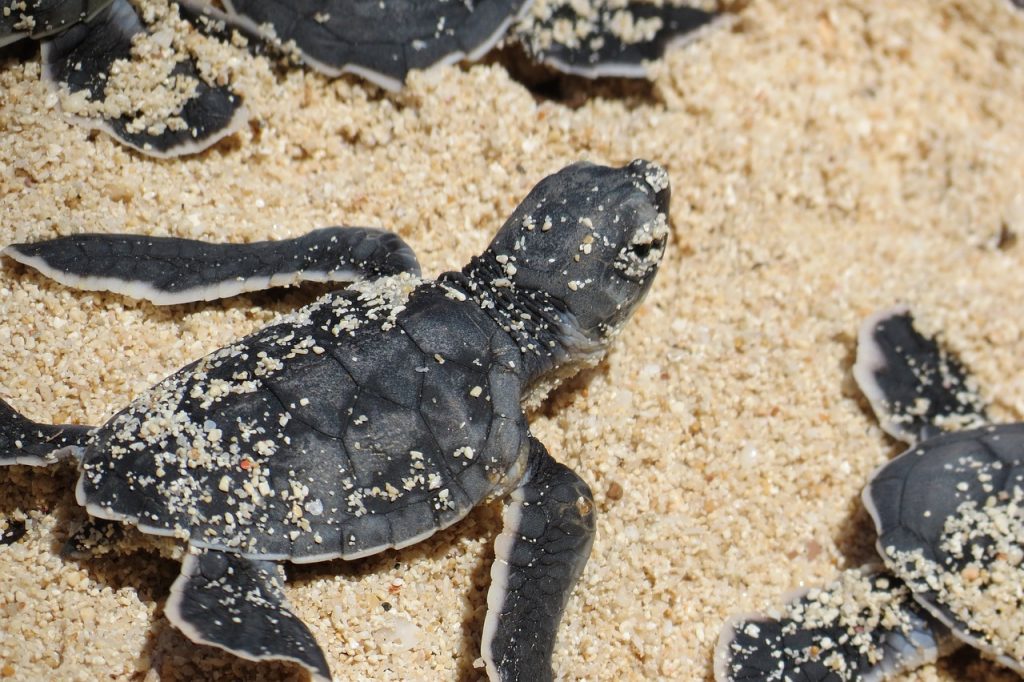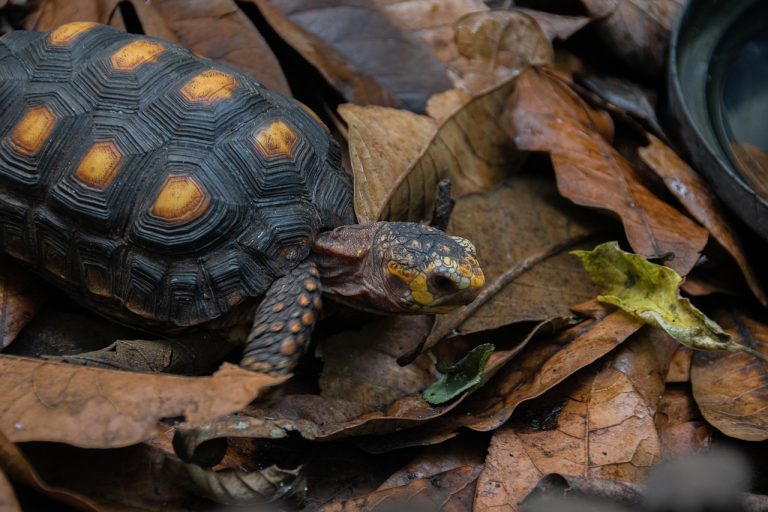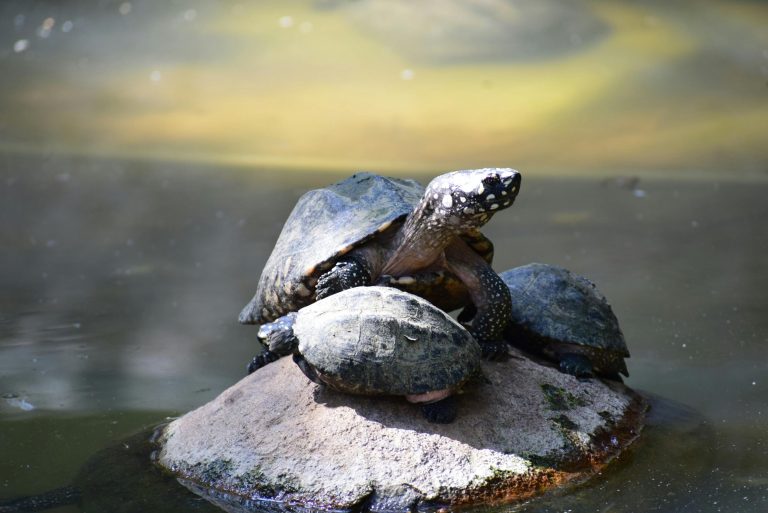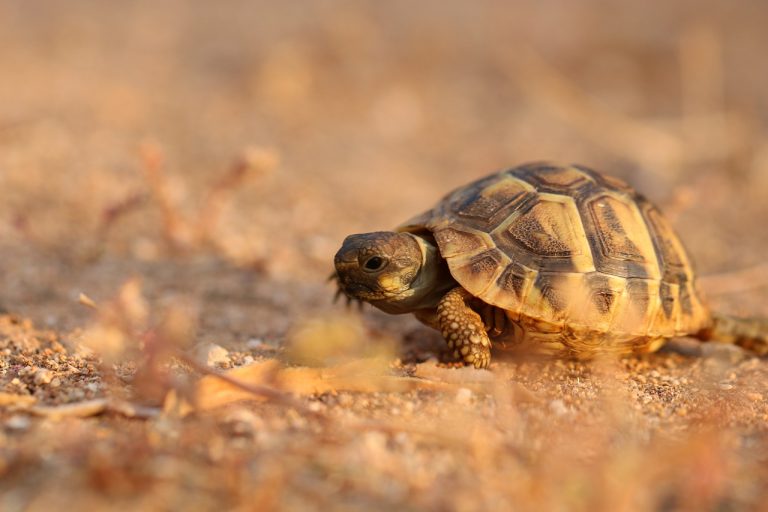What Do Newborn Turtles Eat?
As a young child, I recall being captivated by the serene sight of a baby turtle embarking on its gentle journey towards the sea. That moment ignited a lifelong fascination with these remarkable creatures.
In this blog post, we’ll explore the captivating realm of newborn turtles, with a particular emphasis on their dietary requirements – a vital component for their survival and well-being.
Newborn turtles typically feed on small, soft-bodied aquatic organisms. Hatchlings of sea turtles nourish themselves with zooplankton and algae, while those of freshwater species often consume a diet consisting of insects, small fish, and plant matter. This nourishment plays a pivotal role in fostering their rapid growth and development during the early stages of their lives.
Dietary Needs Of Newborn Turtles
When discussing the dietary requirements of newborn turtles, whether they belong to sea or freshwater species, it becomes apparent that their initial diet plays a pivotal role in their survival and growth.
For baby sea turtles, their journey begins with a perilous crawl from their nests to the ocean, where they embark on feeding within the marine ecosystem. During this crucial phase, their diet typically consists of small organisms like crustaceans and jellyfish, providing essential proteins and nutrients vital for their development.
On the other hand, freshwater turtle species, such as those found in Amazonian regions, exhibit a more varied diet. They may consume a diverse range of foods, including plants and small aquatic creatures like insects, earthworms, mealworms, and snails. This diverse diet ensures a balanced intake of nutrients crucial for their health and proper growth, with particular emphasis on calcium and vitamins, notably vitamin D, essential for shell and bone development.
Understanding the significance of a nutrient-rich diet in their early stages, featuring an optimal mix of protein, calcium, and vitamins, is fundamental to ensuring the overall health and vigor of newborn turtles. Here’s a brief overview of the key components of a newborn turtle’s diet:
- Protein: Derived from small aquatic creatures and insects, protein is essential for growth.
- Calcium: Critical for the development of strong shells and bones.
- Vitamin D: Obtained through exposure to sunlight, vitamin D aids in calcium absorption.
- Other Nutrients: A diverse array of vitamins and minerals to support healthy functioning.
By providing newborn turtles with access to these essential dietary components, we enhance their prospects of thriving in their natural habitats, whether in the depths of the sea or within freshwater environments. Each species possesses unique dietary needs tailored to its specific habitat, contributing to its overall survival and well-being.

What Do Newborn Sea Turtles Eat?
Immediately after hatching, baby sea turtles rely primarily on the yolk sac they carry from birth, which contains essential nutrients crucial for their early development.
Once they deplete their yolk sac reserves, these young turtles begin their oceanic journey, searching for food in their marine environment.
The ocean serves as a rich source of protein, vital for their growth and well-being. As they venture into the sea, their diet expands to include small organisms found in the water column, such as tiny crustaceans, zooplankton, and insects.
These initial feeding habits are critical, as they provide the necessary nutrients and vitamins for robust development, supplying energy and supporting the formation of a resilient shell and body structure.
Key components of their diet, such as calcium for strong bones and shells, and vitamin D for calcium absorption, play pivotal roles in their overall health.
As they progress, the inclusion of various plants and algae in their diet introduces additional vitamins and nutrients, further enhancing their overall well-being.
During the first few years, often termed the ‘lost years’, newborn sea turtles are believed to drift passively with ocean currents. During this period, their diet may encompass a variety of available oceanic items, including jellyfish and floating seaweed.
As they mature, the dietary preferences of sea turtles may evolve depending on their species. Some may transition to a primarily herbivorous diet, consuming sea grasses and algae, while others may remain omnivorous or become primarily carnivorous, feeding on a variety of marine invertebrates, earthworms, mealworms, and snails.
What Do Newborn Freshwater Turtles Eat?
The diet of newborn freshwater turtles plays a vital role in their survival and development. As hatchlings, it is crucial for them to have a well-balanced intake of proteins and other essential nutrients.
Protein is particularly important for their growth, and in the wild, baby turtles typically consume small insects, earthworms, snails, and occasionally small fish. In captivity, their protein requirements can be met with mealworms or specially formulated turtle pellets.
The significance of calcium and vitamins, especially vitamin D, cannot be overstated. These nutrients are essential for the proper development of their shells and bones, with vitamin D playing a crucial role in calcium absorption. While sunlight serves as a natural source of vitamin D, hatchlings kept indoors may require supplements.
Unlike their marine counterparts, freshwater turtle hatchlings have a more diverse diet. While some sea turtle species, like green sea turtles, primarily consume plant-based materials such as algae, freshwater turtle hatchlings have a higher reliance on a diet that includes both animal and plant matter, reflecting their omnivorous nature.
Feeding schedules for baby freshwater turtles should be frequent to accommodate their rapid growth rates. It’s important to observe and adjust their diets based on their appetite and developmental stages.
In addition to live prey, hatchlings can benefit from a variety of leafy vegetables and aquatic plants to simulate their natural diet.
Providing access to fresh water is essential for their hydration and overall health. By ensuring a balanced and carefully monitored diet, we can support the nutritional needs, healthy growth, and well-being of these young reptiles.
What To Feed Newborn Turtles In Captivity?
When tending to newborn turtles, my priority is providing a well-rounded diet tailored to their specific nutritional requirements. In captivity, where natural environments are absent, it’s essential to ensure that these young reptiles receive the nutrients they need for optimal health and growth.
Protein:
Newborn turtles rely on protein for proper development. Initially, I offer them a diet primarily consisting of small, soft-bodied aquatic creatures. This includes:
Live food: Bloodworms and brine shrimp are commonly used to mimic the natural prey that newborn turtles would hunt in the wild.
Commercial turtle food: Hatchling-specific pellets serve as a convenient supplement to live food, providing the necessary protein-to-fat ratio for growth.
Vegetables:
As the turtles mature, I introduce finely chopped aquatic plants and vegetables, as some species gradually transition to a more herbivorous diet.
Calcium:
Calcium is a crucial mineral for shell development. To supplement their calcium intake, I provide cuttlebone pieces or dust their food with calcium powder.
Vitamins:
Vitamin supplements, especially vitamin D3, are added to their diet to prevent deficiencies and support proper calcium absorption.
Additional Tips:
Feeding Frequency: I offer food twice a day in small portions to prevent overfeeding and water pollution.
Water Quality: Maintaining clean water is crucial to prevent the spread of diseases, as hatchlings are particularly sensitive to poor water conditions.
Observation: Regular monitoring of their eating habits and growth helps ensure they are consuming and digesting food effectively.
By adhering to these guidelines and adjusting the diet as the turtles mature, I strive to replicate the benefits of a natural habitat and contribute positively to their early life stages.
Do Newborn Turtles Drink Milk?
Unlike mammals, newborn turtles do not rely on milk for nourishment. Being reptiles, they hatch from eggs fully equipped to fend for themselves without any need for maternal care or milk.
Once a baby turtle emerges from its shell, it is immediately self-sufficient. With instinctual behaviors intact, it can hunt for food and navigate its environment to ensure survival. This remarkable adaptation allows newborn turtles to thrive independently from the moment they hatch.


![200+ List Of Native Turtles Throughout USA [By State]](https://spreadhapiness.com/wp-content/uploads/2024/04/12-1-768x512.jpg)

![How To Catch A Pond Turtle? [Traps, Baits, Tips]](https://spreadhapiness.com/wp-content/uploads/2024/03/pond-2-768x511.jpg)
![21 DIY Turtle Tank Ideas For Happy Turtles [Budget-Friendly]](https://spreadhapiness.com/wp-content/uploads/2024/03/turtle-tank-3-768x576.jpg)